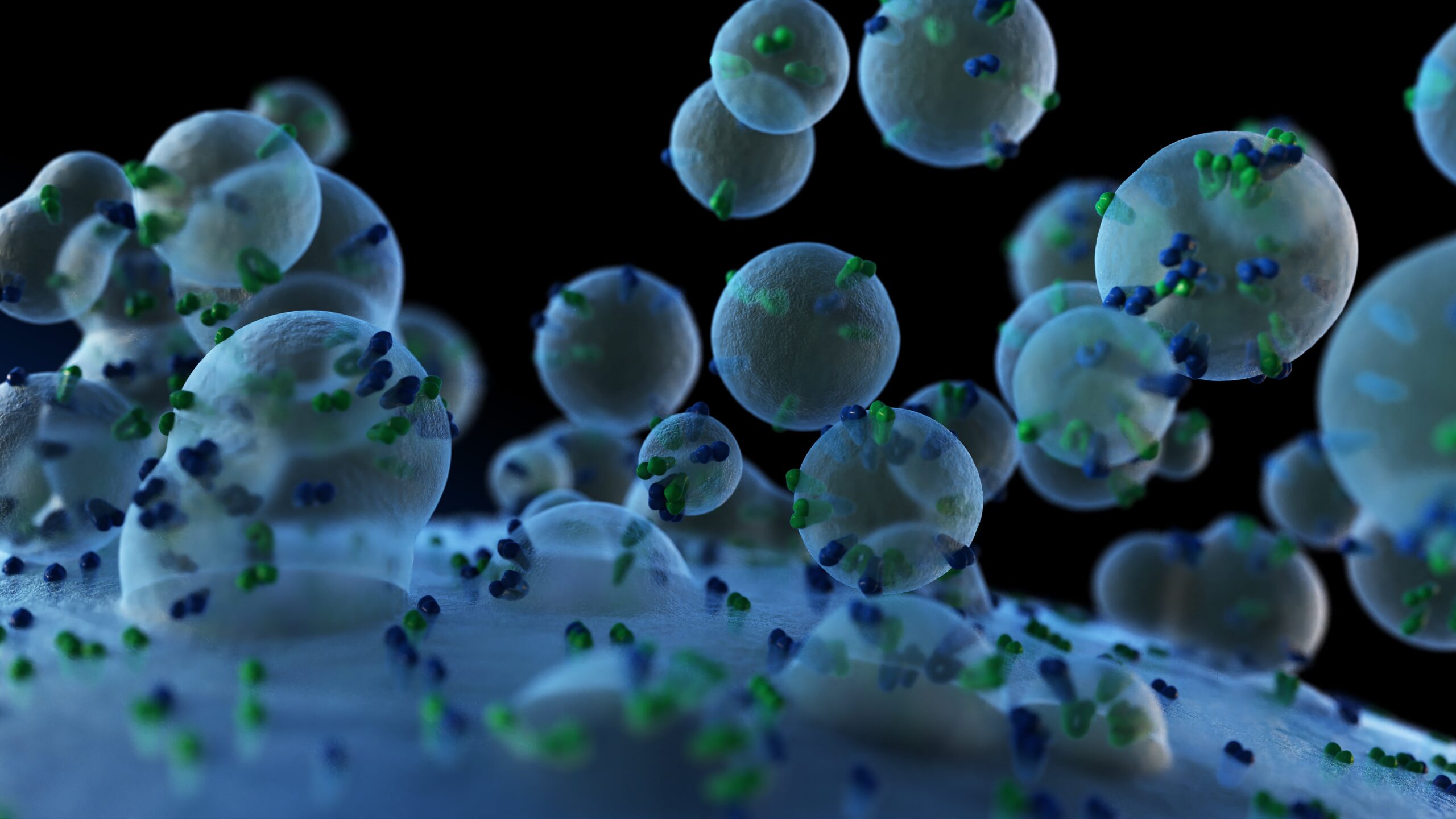Many of us may not have heard of extracellular vesicles, but the tiny cellular bubbles are capturing the attention of scientists around the world. And for good reason.
These microscopic messengers just might hold the key to revolutionary new treatments and early detection of some of our most devastating diseases.
Extracellular vesicles, or EVs, are released by cells throughout the body. Inside these small pouches are proteins, genetic material and other molecules that provide a snapshot of a cell’s health. By studying the contents of EVs, researchers believe they can detect cancer, spinal cord injuries much earlier than ever before — and before symptoms even manifest.
Take spinal cord injuries, for example. These debilitating conditions can often leave people confined to wheelchairs, with limited treatment options.
“SCI is a devastating condition that disrupts the brain’s connection to motor and sensory organs, and until now, it has remained incurable,” explains Dr Jyotirymoy Rakshit, postdoctoral research fellow at the University of Texas Health Science Center at UTHealth Houston.
But scientists are fighting back.
“EVs from certain stem cells could aid in healing after a spinal cord injury by encouraging nerve regrowth and preventing further cell death,” explains Dr Jitendra Kumar Sinha, chief scientific officer at GloNeuro, a Noida-based platform for neuroscience research.
The key is in customizing these EVs to carry specific therapeutic agents directly to the injured site. Researchers are working on ways to genetically engineer the EVs to target the spinal cord, potentially restoring a function that was previously lost.
EVs in early diagnosis
EVs are also showing the promise of the early detection of devastating diseases such as high-grade serous ovarian cancer (HGSOC). These cancer types are notoriously difficult to catch early at a stage when treatment is most effective.
Researchers at the University of Kansas Medical Center are studying the proteins and other molecules found on the surface of EVs released by tumours. They hope that the proteins could be potential warning signs. If fruitful, the research could mean that a simple blood test can diagnose such cancers early.
Dr Abhidha Kohli, assistant professor at the department of biotechnology, Noida Institute of Engineering and Technology, Greater Noida. highlights the importance of exploring non-invasive methods to detect specific biomarkers in circulating exosomes. “These biomarkers can indicate early-stage, non-metastatic ovarian cancer, particularly high-grade serous ovarian cancer [HGSOC], in high-risk individuals,” she says.
The UoKMC researchers’ study used a microfluidic lab-on-chip platform called the ExoProfile chip, specially designed to capture and detect specific exo-proteins associated with ovarian cancer.
By testing the test on a wide range of proteins, they showed that the chip could be very accurate and sensitive at detecting specific biomarkers.
“There’s a strong push to discover improved markers for early-stage ovarian cancer detection, and this research addresses that need,” says Dr Viral Patel, gynaecological oncologist and robotic surgeon at HCG Cancer Centre, Ahmedabad.
Pancreatic cancer
The potential of EVs extends even further, with researchers now exploring their role in the early detection of another notoriously challenging cancer — pancreatic ductal adenocarcinoma (PDAC).
“Diagnosing pancreatic cancer early poses a significant challenge, primarily due to the organ’s inaccessible location and the high incidence of metastasis,” explains Dr Rakshit.
Unlike traditional liquid biopsies that rely on detecting cell-free DNA, EV-based tests can identify cancer-specific markers at an earlier stage. This is because EVs are released by tumours before circulating tumour cells (CTCs) or tumour DNA can be detected, making them valuable for detecting cancer in its nascent stages.
EV-based blood test
Dr Harmeet Dhani, medical director at Biological Dynamics, California, highlights the diagnostic potential of EVs. “Blood tests offer added information, and exosomes, not relying on tumour cell death processes, stand apart from conventional [circulating tumour DNA] (ctDNA) detection methods,” he says.
Of course, turning these EV-based discoveries into real medical treatments and diagnostics will take time and further research. But scientists are incredibly excited about the potential. These tiny bubbles could revolutionize revolutionise the way we approach some of our most devastating health challenges.
And so the next time we hear about extracellular vesicles, it would help to remember — that these unassuming cellular messengers might just be the key to a healthier future.

















